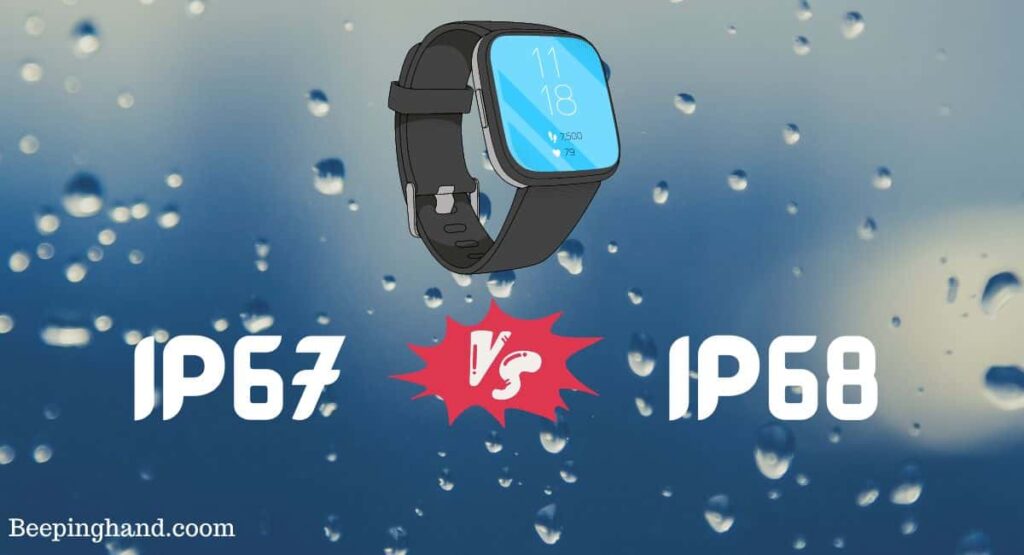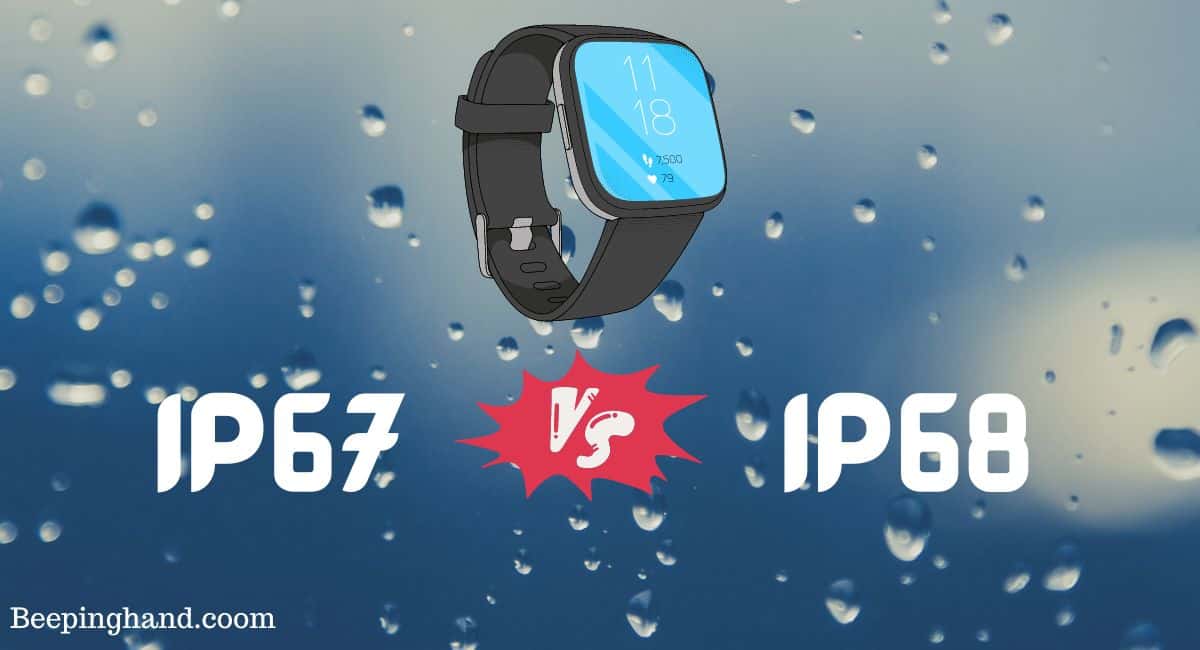When it comes to choosing electronic devices that can withstand water and dust exposure, understanding IP (Ingress Protection) ratings is crucial. Two common ratings you may come across are IP67 and IP68.
Here, we’ll discuss the difference between IP67 vs IP68, helping you make an informed decision when selecting devices that offer protection against water and dust.
IP67 vs IP68: Which is Better?

What is IP67?
IP67 is an international standard that assesses a device’s level of protection against water and dust. The “IP” stands for Ingress Protection, and the “6” indicates the device’s dust resistance. A device with an IP67 rating offers complete protection against dust, ensuring no particles can penetrate its interior. Furthermore, it can withstand immersion in water up to a depth of 1 meter (approximately 3.3 feet) for a maximum of 30 minutes without sustaining damage.
What is IP68?
IP68 is another rating commonly found on devices. Similar to IP67, IP68 signifies excellent dust resistance. However, it takes water resistance a step further. A device with an IP68 rating provides the same level of dust protection as IP67 but offers superior water resistance. It can be submerged in water beyond 1 meter (approximately 3.3 feet) for an extended period, generally specified by the manufacturer. The exact depth and duration may vary depending on the device.
Differences between IP67 and IP68
While both IP67 and IP68 ratings indicate high levels of water and dust resistance, there are important distinctions to consider –
- Water Resistance – IP67 devices can handle immersion in water up to 1 meter (approximately 3.3 feet) for 30 minutes, whereas IP68 devices offer superior water resistance beyond that depth and duration.
- Dust Resistance – Both IP67 and IP68 devices provide complete protection against dust, ensuring no particles can enter the device’s interior.
Also Read: Is Fitbit Watch Waterproof
Choose the Right Rating
Selecting the appropriate rating depends on your specific needs and usage requirements –
- If you need a device that can handle accidental water exposure, occasional splashes, or light rain, an IP67-rated device will suffice.
- If your device will be exposed to more extreme conditions, such as underwater activities or prolonged water immersion, opting for an IP68-rated device offers added peace of mind.
It’s important to remember that while IP67 and IP68 ratings offer high levels of water and dust resistance, they do not guarantee complete waterproofing or protection against other elements, such as impact or extreme temperatures.
Also Read: Get a Smartwatch for Free
Wrapping Up
This article is a comparison between IP67 vs IP68. Understanding the differences between IP67 and IP68 ratings is crucial when selecting electronic devices that can withstand water and dust exposure. IP67 offers excellent protection against dust and can handle immersion in water up to 1 meter (approximately 3.3 feet) for 30 minutes, while IP68 provides even greater water resistance beyond that depth and duration.
I hope this article was helpful to you. If you still have any questions then feel free to ask in the comment section. For more, Click Here to read.
FAQ’s IP67 vs IP68
What does the “IP” in IP67 and IP68 stand for?
The “IP” stands for Ingress Protection, indicating the level of protection a device offers against water and dust.
Can an IP67-rated device be submerged in water?
Yes, an IP67-rated device can be submerged in water up to a depth of 1 meter (approximately 3.3 feet) for a maximum of 30 minutes without sustaining damage.
How does an IP68 rating differ from IP67?
While both IP67 and IP68 ratings provide excellent dust resistance, IP68 offers superior water resistance beyond 1 meter (approximately 3.3 feet) and for a longer duration, as specified by the manufacturer.
Are IP67 and IP68 devices completely waterproof?
It’s important to note that IP67 and IP68 ratings indicate water resistance rather than complete waterproofing. These ratings specify the level of protection against water immersion, but they do not guarantee that the device is impervious to water under all conditions.
Can an IP67 or IP68-rated device be used underwater for swimming or diving?
While both ratings offer water resistance, it is crucial to check the manufacturer’s specifications to determine the device’s specific capabilities. Some IP68-rated devices may be suitable for underwater activities, but the depth and duration must be within the manufacturer’s guidelines.
Are all smartphones and electronic devices IP67 or IP68-rated?
No, not all devices have IP67 or IP68 ratings. The presence of an IP rating depends on the manufacturer’s design and the intended usage of the device. It is essential to check the specifications and marketing materials for the IP rating information of a specific device.
Can an IP67 or IP68-rated device be charged while wet?
It is generally not recommended to charge a device while it is wet, even if it has an IP67 or IP68 rating. Moisture on the charging ports or connectors may interfere with proper charging and potentially damage the device.
